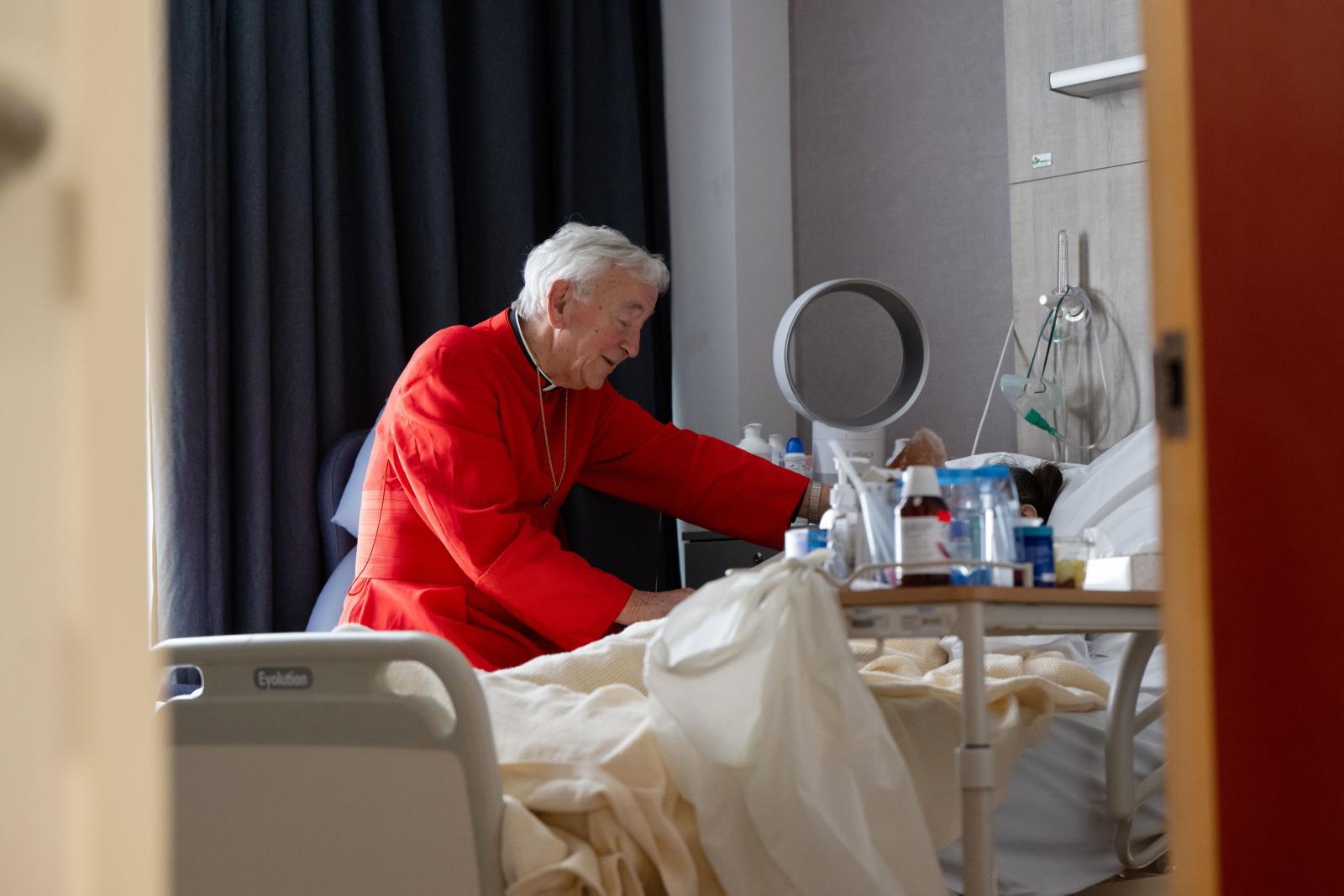Cardinal Vincent Nichols has written a pastoral letter urging Catholics to contact their MPs - even if they have done so already - to oppose the Bill that seeks to legalise assisted suicide. The letter will be read in the parishes of the diocese over the weekend of 5-6 April.
As well as restating the Bishops' objections to the Bill in principle, Cardinal Nichols expresses his dissatisfaction regarding the "deeply flawed" parliamentary process.
'It is a fundamental duty of every MP,' he writes, 'to ensure that legislation is not imposed on our society which has not been properly scrutinised and which will bring about damaging consequences.'
Questioning why there has not been a Royal Commission or independent inquiry before considering changing the law on matters of, literally, life and death, the Cardinal wrote:
'The Bill itself is long and complex and was published just days before MPs voted on it, giving them inadequate time to consult or reflect upon it. The time for debate was minimal. The Committee examining the Bill took only three days of evidence: not all voices were heard, and it comprises an undue number of supporters of the Bill. In short, this is no way to legislate on such an important and morally complex issue.'
Ahead of the Bill's Third Reading and vote, likely on or around Friday, 25 April, Cardinal Nichols points out that many vital questions remain unanswered:
'Can MPs guarantee that the scope of the Bill will not be extended? In almost every country where assisted suicide has been introduced the current scope is wider than was originally intended. What role, if any, will the judiciary have in the process? We were told that judicial oversight was a necessary and vital part of the process; now we are told it isn't needed at all. What will protect the vulnerable from coercion, or from feeling a burden on family? Can the National Health Service cope with assisted suicide or will it, as the Health Secretary has warned, cause cuts elsewhere in the NHS? Can MPs guarantee that no medical practitioner or care worker would be compelled to take part in assisted suicide? Would this mean the establishment of a "national death service"?'
What is needed, he writes, is first-class, compassionate palliative care at the end of life:
'This is already provided to many in our society but, tragically, is in short supply and underfunded. No-one should be dispatched as a burden to others. Instead, a good society would prioritise care for the elderly, the vulnerable, and the weak. The lives of our families are richer for cherishing their presence.'
Cardinal Nichols makes it clear that Catholics should waste no time in contacting their member of parliament:
'Every MP, and government, has a solemn duty to prevent [under-scrutinised and rushed] legislation reaching the statute book. So I appeal to you: even if you have written before, please make contact now with your MP and ask them to vote against this Bill not only on grounds of principle but because of the failure of Parliament to approach this issue in an adequate and responsible manner.'
Image: Mazur/cbcew.org.uk




